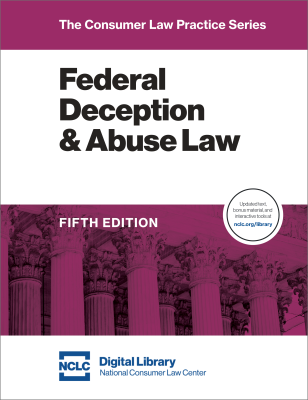On Tuesday, January 20, 2016, in Campbell-Ewald Co. v. Gomez, ___ U.S. ___, 2016 WL 228345 (Jan. 20, 2016), the Supreme Court held that an unaccepted Rule 68 offer did not moot a TCPA class action. (A separate article will discuss the Rule 68 holding.) The decision includes several important TCPA holdings as well. Chapter 6 of NCLC’s Federal Deception Law (2d ed. 2016, to be released in early February) has been updated online to reflect the Supreme Court’s key TCPA holdings:
- “A text message to a cellular telephone … qualifies as a “call” within the compass of” the TCPA’s prohibition against autodialed or prerecorded calls to cell phones without the consumer’s prior express consent. See § 6.7.2.
- A defendant can be liable for another’s TCPA violations based on common law principles of agency. See § 6.9.5.4.
- While the United States and its agencies have immunity from TCPA suits, federal contractors do not. See § 6.9.5.1.


